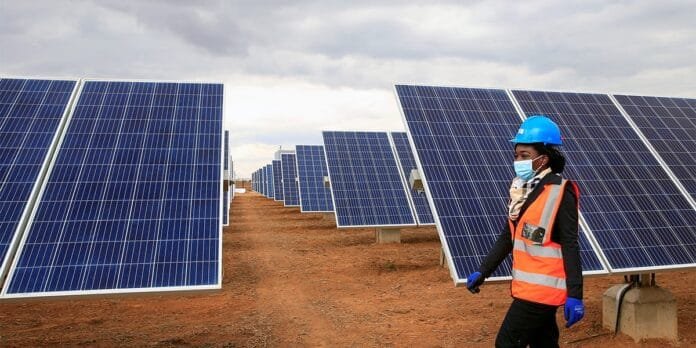In times of searching for sustainable energy solutions, a study led by Prof. Célia Artur, from Eduardo Mondlane University, presents a disruptive proposal for Maputo households: solar thermal systems for heating water. This solution can significantly reduce energy consumption and carbon dioxide emissions, while at the same time relieving household costs.
The study and its results
The research, carried out with the support of the National Research Fund (FNI), involved 700 households spread across 28 neighborhoods in the Mozambican capital. Currently, 46% of households use electricity and 41% biomass to heat water, practices which, although common, have high levels of energy inefficiency. Biomass, for example, consumes around 2,920 kWh per household per year, more than double the energy consumed by electric heaters.
The transition to solar thermal systems could transform this scenario:
- Reduce electricity consumption by up to 65.7%;
- A drop in carbon emissions of 78.7%;
- Average annual savings per family of 244 USD.
With up to 99% efficiency in water heating, depending on the installed capacity, this technology is emerging as an essential ally in urban sustainability.
Biomass: the other pillar of sustainability
The research goes beyond solar energy, exploring the potential of invasive biomass as a renewable energy source. In partnership with the Botswana International University of Science and Technology, a torrefaction system is being developed that transforms biomass into affordable and clean solid biofuels.
The initiative, which runs until 2025, envisages:
- Production of biofuels from the 120 million hectares of biomass available in southern Africa;
- Construction of parabolic trough solar generators in Mozambique;
- Optimization of torrefaction systems in Botswana.
In addition to the environmental impact, the project promises social benefits, such as job creation and the training of communities in renewable energy technologies.
Challenges and ways forward
Despite the advantages, the adoption of these technologies faces barriers, such as high initial costs and the need for public policies that promote local production and awareness of energy efficiency. On cloudy days, the use of electrical backup systems can cause consumption peaks, reinforcing the importance of mitigation strategies.
FNI’s funding highlights Mozambique’s commitment to innovative solutions that reconcile economic progress and environmental preservation. By paving the way for a cleaner energy future, these initiatives stand out as benchmarks on the African continent.




